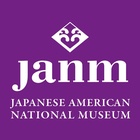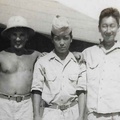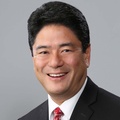Six years ago, we all watched the terrifying images of passenger planes crashing into the Twin Towers of the World Trade Center, the carnage and death of fellow Americans, and the damage to our national sense of identity and security. Throughout that first day and the weeks to follow, I kept wondering: Who were these attackers? Why did they choose such a devastating method of killing innocent people? Most importantly, I asked what our response would be.
The words of Dr. Martin Luther King Jr. kept running through my mind. Dr. King avowed that “the ultimate measure” of a nation is “not where it stands in moments of comfort and convenience” but rather where it stands “at times of challenge and controversy.” On September 11, 2001, the United States was thrust into a time of challenge and controversy. For many Americans, the chilling parallels to Pearl Harbor and the start of World War II were self-evident: There was an unanticipated attack on American soil resulting in the deaths of thousands of innocent Americans, and the attackers came from a region of the world perceived to be vastly different in cultural and religious practices. Sixty years earlier, the “ultimate measure” of the American response was to choose security over liberty, racial prejudice over tolerance, and hysteria over rationality. What would the response be this time? Would we once again abandon the Constitutional principles upon which our nation was built? Or would we learn from the past?
The story of the American concentration camps and the incarceration of more than 120,000 Americans of Japanese ancestry was arguably the most egregious violation of the American Constitution in the history of the nation. The story, however, does not end with the closing of the camps. The second chapter of the story is that of the Japanese American redress movement. It was in this movement that the Japanese American community found the strength and will to demand atonement for past wrongs. The movement was a process that involved community mobilization, political strategizing, and national debate. While the redress movement benefited the Japanese American community in particular, the true benefit was to all Americans who cherish and embrace the constitutional values of equal opportunity, due process, and justice for all. Through the Civil Liberties Act of 1988, Americans reaffirmed that the United States is a nation of law under which all individuals have the right be treated equally and fairly. The redress story is not only a great Japanese American story—it is a great American story.
Because of the redress struggle, Americans were exposed to the frailties of the Constitution and the Bill of Rights. Today, twenty years after the signing of the Civil Liberties Act of 1988 and six years after the World Trade Center attack, Americans are reminded of the need to be ever vigilant in the safeguarding of every American’s civil liberties. The exclusion and incarceration of Japanese Americans, as well as the presidential apology and monetary redress payments granted to them, are full of important lessons. These are painful lessons that remind us not to abandon our most cherished values in times of challenge and controversy. They are also hopeful lessons that point to our true measure as a nation dedicated to “liberty and justice for all.”
* This article was originally published in inspire, the print magazine of the Japanese American National Museum, in the spring 2008 issue.
© 2008 Japanese American National Museum





